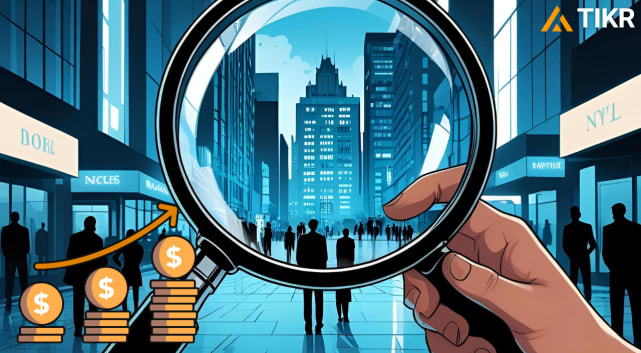RTX Corporation (NYSE: RTX) designs and manufactures aerospace and defense systems used in commercial aviation, military applications, and space exploration. It is one of the world’s largest defense contractors, recently trading around $158 per share with a market value of about $212 billion.
Once built from legacy defense businesses, RTX has evolved into a global supplier of advanced technologies that power both national security and civilian air travel. Supported by steady defense budgets and a recovery in aerospace demand, the company has become a core holding for institutions seeking stability and long-term cash flows. Its broad portfolio, government contracts, and deep technological moat give RTX advantages that are not easily replaced.
Today, RTX is widely owned across index funds, sovereign wealth vehicles, and active managers. Looking at its ownership and insider moves helps show how big investors feel about the stock right now.
Who Are RTX’s Top Shareholders?

See whether RTX’s top shareholders are buying or selling today >>>
RTX designs and supplies aerospace and defense systems for both commercial and military customers, making it one of the most important contractors in the industry. Its stock is mostly held by index giants like Vanguard and State Street, which means a large part of ownership is tied to passive flows rather than active conviction. At the same time, some managers have been shifting positions, giving insight into where confidence lies.
- Vanguard Group: 121.5M shares (9.1%), ~$19.3B. Added 2.2M (+1.9%).
- State Street: 112.7M shares (8.4%), ~$17.9B. Added 552K (+0.5%).
- Capital Research: 75.4M shares (5.6%), ~$12.0B. Cut 2.4M (-3.1%).
- BlackRock: 72.4M shares (5.4%), ~$11.5B. Trimmed 347K (-0.5%).
- Capital International: 55.9M shares (4.2%), ~$8.9B. Added 1.5M (+2.8%).
- Dodge & Cox: 41.8M shares (3.1%), ~$6.6B. Cut 600K (-1.4%).
- Geode Capital: 29.1M shares (2.2%), ~$4.6B. Added 388K (+1.4%).
- JPMorgan Asset Mgmt: 21.0M shares (1.6%), ~$3.3B. Big increase (+32.8%).
- Fisher Investments: 20.6M shares (1.5%), ~$3.3B. Added 837K (+4.2%).
- Norges Bank: 16.2M shares (1.2%), ~$2.6B. Added 1.1M (+7.1%).
- Morgan Stanley: 16.1M shares (1.2%), ~$2.6B. Flat (-0.1%).
One highlight from last quarter is Ratan Capital Management, led by Nehal Chopra, which lifted its RTX stake by 1,000% to 55K shares worth about $8 million. That surge looks like a major bet on the stock’s continued strength.
Another big move came from Citadel Advisors, run by Ken Griffin, which boosted its holding by 738% to 1.34M shares valued at $196 million. Such a large increase suggests growing conviction in RTX’s aerospace and defense exposure.
Meanwhile, Moore Capital Management, led by Louis Bacon, raised its position by 149% to roughly 170K shares worth nearly $25 million. For a global hedge fund, that jump signals meaningful confidence in RTX’s long-term outlook.
One highlight from the institutional side is JPMorgan Asset Management’s 33% boost, which looks like a strong show of confidence in RTX’s long-term defense exposure. In contrast, Capital Research’s reduction may reflect a more cautious stance on valuation, while Norges Bank’s increase suggests sovereign wealth funds see RTX as a stable defensive holding.
This mix shows a stable core of passive ownership, while selective active managers and hedge funds are leaning in. The biggest buyers appear to be backing RTX’s role as a reliable defense compounder.
Track the top shareholders of over 50,000 global stocks (It’s free) >>>
RTX’s Recent Insider Trades

Insider trading at RTX has been relatively quiet in recent months, and most transactions appear to be modest in size. The activity leans toward small sales by executives, which may suggest diversification, while a couple of insider purchases point to selective confidence at current share levels.
Here are some recent insider trades:
- Kevin Dasilva (Treasurer): Sold ~8.7K shares at ~$156.
- Ramsaran Maharajh (Officer): Sold ~1.5K shares at ~$152.
- Dantaya Williams (Officer): Sold ~16.9K shares at ~$138.
- Amy Johnson (Officer): Multiple small sales totaling ~13K shares at ~$127.
- Brian Rogers (Officer): Bought ~2.9K shares.
- Denise Ramos (Director): Bought ~2.7K shares.
It looks like most transactions were on the selling side, with purchases limited in size. The two small buys may show some willingness among leadership to add, though the scale does not point to strong conviction.
Insider activity appears cautious. While the selling has been modest, the lack of meaningful buying suggests management may not view the stock as deeply undervalued.
See recent insider trade data for over 50,000 global stocks (It’s free) >>>
What the Ownership & Insider Trade Data Tell Us
RTX’s ownership is anchored by the largest passive managers, keeping the stock widely held across global portfolios. That stability is reinforced by selective buying from institutions like JPMorgan, Fisher, and Norges Bank, which suggests that some active managers and sovereign wealth funds continue to see RTX as a dependable defense name. At the same time, trimming from Capital Research and Dodge & Cox shows that not all investors are leaning in at current levels.
Insider activity, on the other hand, appears more cautious. The pattern has tilted toward small sales, and while a few insiders have bought shares, the purchases have been limited in size. That may point to a more measured view from management compared to the institutions that are increasing exposure.
The message looks mixed. Large institutions are generally comfortable adding to RTX, reinforcing its reputation as a defensive compounder, while insiders appear more hesitant. This balance suggests the stock is viewed as stable from the outside, but leadership may be waiting for more clarity before committing further.
Wall Street Analysts Are Bullish on These 5 Undervalued Compounders With Market-Beating Potential
TIKR just released a new free report on 5 compounders that appear undervalued, have beaten the market in the past, and could continue to outperform on a 1-5 year timeline based on analysts’ estimates.
Inside, you’ll get a breakdown of 5 high-quality businesses with:
- Strong revenue growth and durable competitive advantages
- Attractive valuations based on forward earnings and expected earnings growth
- Long-term upside potential backed by analyst forecasts and TIKR’s valuation models
These are the kinds of stocks that can deliver massive long-term returns, especially if you catch them while they’re still trading at a discount.
Whether you’re a long-term investor or just looking for great businesses trading below fair value, this report will help you zero in on high-upside opportunities.
Click here to sign up for TIKR and get our full report on 5 undervalued compounders completely free.









